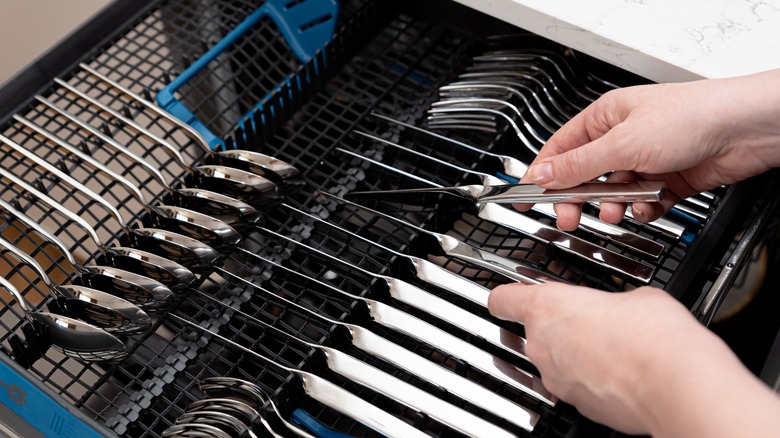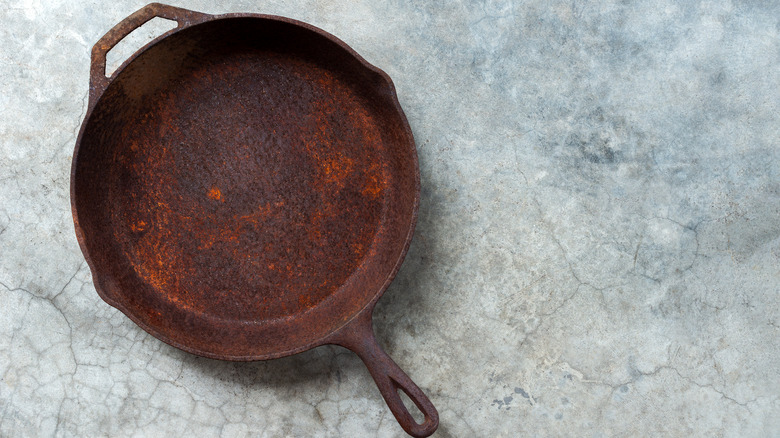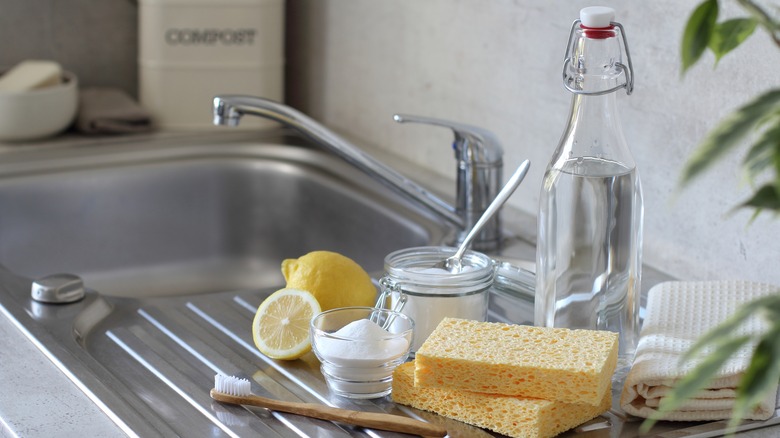What It Means If Your Dishwasher Is Rusting Your Cutlery
Washing each individual cup, plate, fork, and spoon in your house is a tedious and labor-intensive task. Households with dishwashers not only save time on the task, but money, too — as much as $35 a year (if Energy Star-certified), according to the Department of Energy.
One of the risks you run by using a dishwasher as opposed to hand-washing, though, is forfeiting control over how your dishes are cleaned. There are a whole host of things that you should never put in the dishwasher, from metals like cast-iron and copper to wood and bamboo utensils to weaker plastics and professional knives, per Whirlpool.
This is because the conditions inside the appliance are very hot and wet, which can damage your dishes in a variety of ways. Plastic can warp, knives can dull, and wood can harbor bacteria or split. Even things that can go in your dishwasher can be negatively affected, like cutlery coming out of the cycle with rust spots.
What is contact corrosion?
If you notice your cutlery is coming out of the dishwasher with rust spots, don't panic and think there's something defective with the appliance itself. As NCH Europe explains, rust is the result of iron coming in contact with water and oxygen. Non-iron metals can rust, too, if they touch rusted iron, which is known as contact corrosion.
According to Bosch UK, this is the primary cause of rust in your dishwasher. While items like iron shouldn't be put in your dishwasher, accidents happen. Your cutlery could even come in contact with a rusted pan outside of the dishwasher or a pot with internal iron components.
Regardless, check each item before you put it into the dishwasher to make sure it isn't rusting, as it will just keep transferring, not only to your cutlery, but other metal items. If you have a metallic utensil basket, make sure that it hasn't rusted either.
Removing rust from cutlery
If you do find rust on your cutlery, you shouldn't use the utensils or wash them in the dishwasher until the rust has been removed. There are a few ways to achieve this, all using simple tools and ingredients. According to Magica, Inc., one way involves cream of tartar and lemon juice. Simply mix the two together until a paste forms and rub it onto the affected cutlery; this should help to reverse the oxidation process.
Lemon juice and baking soda mixed together in a paste also works. For tougher rust spots, let the paste set for roughly 30 minutes. Clean it off with water and dry thoroughly, repeating as needed. Finally, you can use just baking soda and water, again creating a paste, though thinner this time. Use a cloth to thoroughly rub the solution into the utensil at hand, going in the direction of the grain until the rust is completely gone.


